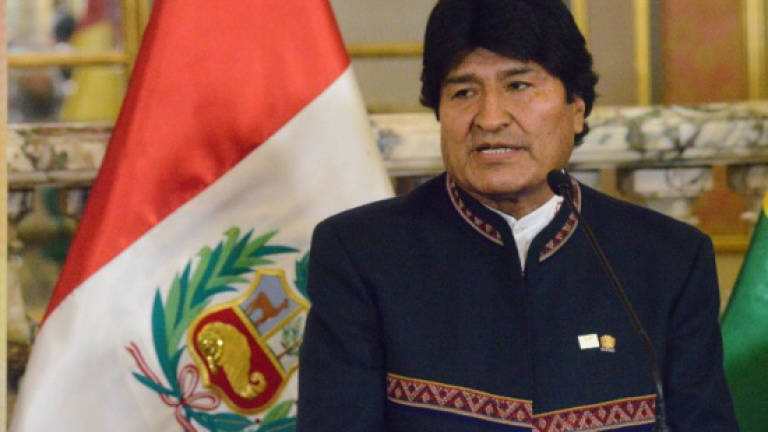Bolivia's Morales rejoices as court okays run for fourth term

LA PAZ: Bolivian President Evo Morales rejoiced Wednesday following a court decision authorizing a tilt for a fourth consecutive term, in what the opposition slammed as a blow to democracy.
Morales, Bolivia's first indigenous president, first took office in January 2006. He would rule until 2025 if re-elected in 2019, giving him 19 consecutive years in power.
The leftist president told a news conference that a possible fourth term "guarantees a democratic continuity, but also guarantees stability, dignity and work for dignity".
Morales narrowly lost a referendum last year on changing the constitution to allow him to seek a fourth term.
Bolivia's constitutional court, however, stepped in when his party mounted an appeal, and ruled in his favor on Tuesday.
"The Democratic and Cultural revolution continues. To Victory forever!" the 58-year-old president wrote on Twitter.
In February 2016 Bolivians voted by a slim margin against proposed changes to the constitution to allow Morales, already Bolivia's longest-serving leader since independence from Spain in 1825, to stand again for the presidency.
The constitutional court, however, ruled that the right to run for office superseded the limits imposed in the constitution.
Morales already had the constitution changed three years after taking office. Under that revised document he was elected president in 2009, and then won what was meant to be a one-off renewal in 2014.
Blow to democracy
Demonstrators against Morales' reelection took to the streets in the capital La Paz on Wednesday. In nearby El Alto, students marched under a banner calling on the president to step down.
The ruling "turns Bolivia into a country subject to the discretion of President Morales," said Carlos Mesa, who according to opinion polls would be Morales' strongest opponent if he decides to run for office.
"We will not allow Bolivia to become Venezuela and we will confront Evo Morales in the streets, at the polls, in the city, and in the countryside," said former opposition candidate Samuel Doria Medina.
"This is one of the largest attacks on the rule of law, the Constitution, democracy," added constitutional lawyer Carlos Alarcon, referring to the constitutional court's ruling that ignored last year's referendum.
Political analyst Jorge Lazarte said the court ruling was "a coup against the constitution and a blow against the popular will."
Former president Jorge Quiroga said, "Being a tyrant is not, nor will be, recognized internationally".
Morales belongs to a generation of Latin American leftist leaders who champion "21st-century socialism".
He has overseen robust economic growth, but opponents accuse him of tolerating corruption and investing in flashy infrastructure projects at the expense of health and education.
Bolivia's mineral- and the gas-rich economy has more than tripled in size during his decade in office.
Morales has been re-elected twice with large majorities. Last year's referendum was his only defeat at the polls.
Separately, the secretary general of the Organization of American States, Luis Almagro, questioned the court decision and recalled that re-election had been rejected in a referendum.
The Morales administration is a staunch ally of leftist governments in Cuba and Venezuela and a fierce critic of the United States. — AFP